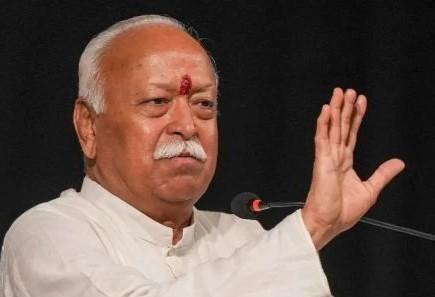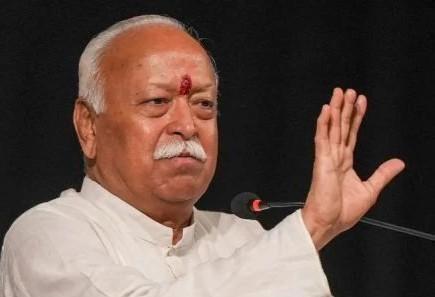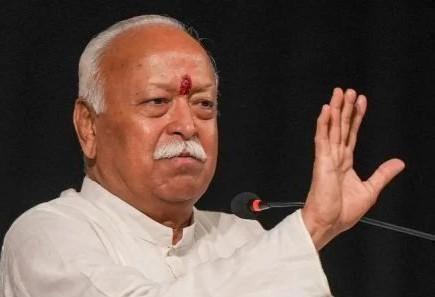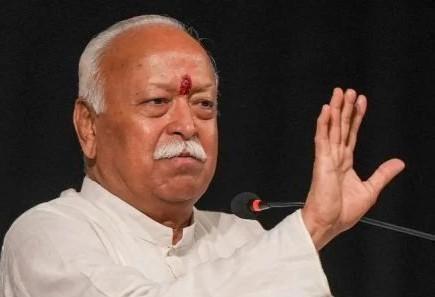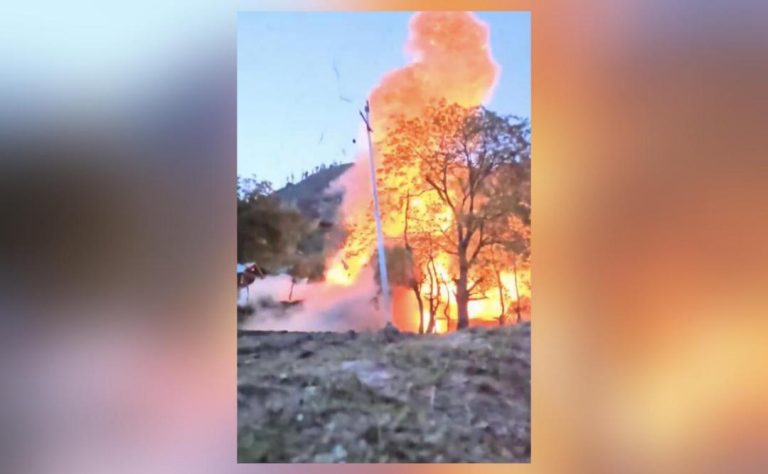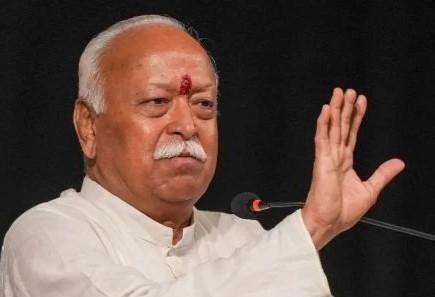
If someone turns to evil then we’ll teach lesson: Bhagwat on J&K attack
In the wake of the recent terror attack in Pahalgam, Jammu and Kashmir, the Chief of Rashtriya Swayamsevak Sangh (RSS) Mohan Bhagwat has sparked a debate with his statement on the role of the government in dealing with “oppressors and hooligans”. Speaking to a news channel, Bhagwat emphasized that non-violence is indeed India’s religion, but so is teaching a lesson to those who indulge in evil acts. His statement has raised questions about the fine line between protecting citizens and resorting to violence.
The attack in Pahalgam, which claimed the lives of several innocent tourists, has left the nation in shock. The incident has once again highlighted the vulnerability of the Kashmir Valley to terrorist activities. As the investigation into the attack is underway, Bhagwat’s statement is being seen as a reflection of the RSS’s stance on dealing with terrorism.
In his interview, Bhagwat said, “We never harm or disrespect our neighbours, but if someone is bent on being evil, what is the cure? The king’s duty is to protect the people, and he will do his duty.” His statement is being interpreted as a warning to those who indulge in terrorist activities, implying that the government will take necessary measures to protect its citizens.
Bhagwat’s emphasis on non-violence is a significant aspect of his statement. He is right in saying that non-violence is an essential part of Indian culture and tradition. However, in the face of terrorism and violence, the question remains whether non-violence is always the most effective approach. The Indian government has been criticized in the past for its inability to effectively counter terrorism, which has led to a sense of vulnerability among the citizens.
The RSS chief’s statement also raises questions about the role of the government in dealing with “oppressors and hooligans”. Who defines what constitutes an “oppressor” or a “hoologian”? Is it the government, or is it the people who are affected by the violence? The lack of clarity on this issue is a cause for concern, as it could lead to arbitrary use of power and violation of human rights.
Another aspect of Bhagwat’s statement that is worth analyzing is the reference to the “king’s duty” to protect the people. The monarchic system of governance is no longer applicable in modern India, and the Prime Minister or the Chief Minister are not kings in the classical sense. The statement could be seen as a nostalgic reference to the past, or it could be interpreted as a call for a strong and authoritarian leadership.
Bhagwat’s statement has also sparked a debate about the efficacy of the government’s anti-terrorism policies. The recent attacks in Kashmir have raised questions about the effectiveness of the security measures in place. The government has been criticized for its inability to prevent such attacks, and Bhagwat’s statement could be seen as an acknowledgement of the government’s failure to protect its citizens.
In conclusion, Bhagwat’s statement on the J&K attack is a complex issue that requires careful consideration. While non-violence is an essential part of Indian culture, the government has a responsibility to protect its citizens. The line between protecting citizens and resorting to violence is thin, and it is essential to ensure that the government’s actions are guided by the principles of human rights and justice.
As the investigation into the Pahalgam attack continues, it is essential to maintain a nuanced approach to dealing with terrorism. The government must take necessary measures to protect its citizens, while also ensuring that the use of force is proportional and justifiable. Bhagwat’s statement is a reminder that the government has a responsibility to protect its citizens, but it is also essential to ensure that the measures taken are guided by the principles of human rights and justice.
Source: https://youtu.be/SpAKVWl5wII
